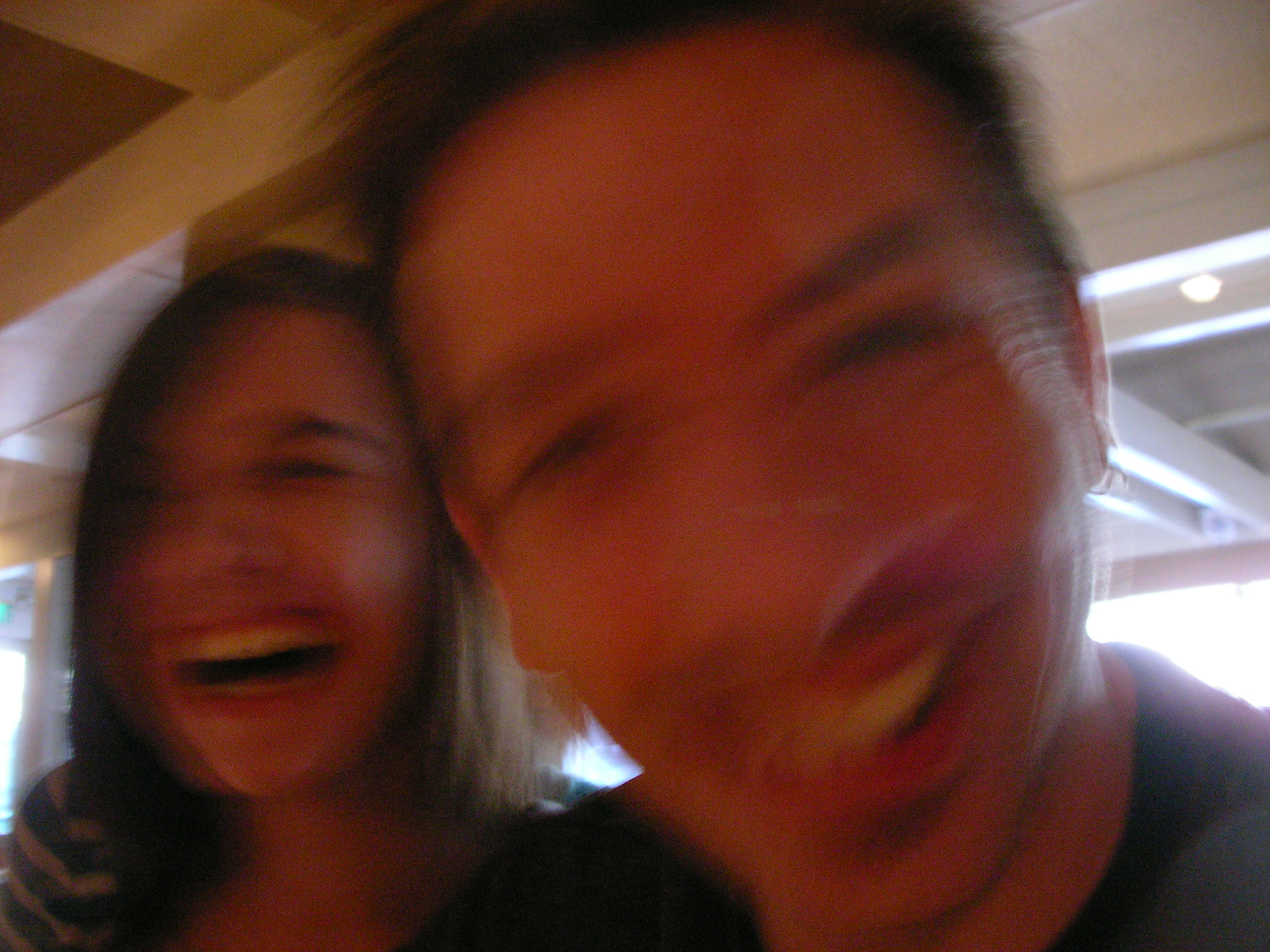Reginald, the Pretentious Creepy Guy from Your Wri...
Fantastically Bad Cinema: "3:10 to Yuma"
5 Questions About: NFL
Flame Outs
Our Favorites (and Not So Favorites) from 2007
5 Questions About: Jane Austen
Hall of Lame: Superheroes You Wouldn't Want To Be
Poem: Spanish Poetry
Six-word Stories
Literary Criticism
Fantastically Bad Cinema
Essays
Under God's Right Arm
June 2006
July 2006
August 2006
September 2006
October 2006
November 2006
December 2006
January 2007
February 2007
March 2007
April 2007
May 2007
June 2007
July 2007
August 2007
September 2007
October 2007
November 2007
December 2007
January 2008
February 2008
March 2008
April 2008
May 2008
June 2008
July 2008
August 2008
September 2008
October 2008
November 2008
December 2008
January 2009
February 2009
March 2009
Alcoholic Poet
Baby Got Books
Beaman's World
BiblioAddict
Biblio Brat
Bill Crider's Pop Cultural Magazine
The Bleeding Tree
Blog Cabins: Movie Reviews
A Book Blogger's Diary
BookClover
Bookgasm
Bookgirl's Nightstand
Books I Done Read
Book Stack
The Book Trib
Cold Hard Football Facts
Creator of Circumstance
D-Movie Critic
The Dark Phantom Review
The Dark Sublime
Darque Reviews
Dave's Movie Reviews
Dane of War
David H. Schleicher
Devourer of Books
A Dribble of Ink
The Drunken Severed Head
Editorial Ass
Emerging Emma
Enter the Octopus
Fatally Yours
Flickhead
The Genre Files
The Gravel Pit
Gravetapping
Hello! Yoshi
HighTalk
Highway 62
The Horrors Of It All
In No Particular Order
It's A Blog Eat Blog World
Killer Kittens From Beyond the Grave
The Lair of the Evil DM
Loose Leafs From a Commonplace
Lost in the Frame
Little Black Duck
Madam Miaow Says
McSweeney's
Metaxucafe
Mike Snider on Poetry
The Millions
Moon in the Gutter
New Movie Cynics Reviews
Naked Without Books
A Newbie's Guide to Publishing
New & Improved Ed Gorman
9 to 5 Poet
No Smoking in the Skull Cave
Orpheus Sings the Guitar Electric
Polly Frost's Blog
Pop Sensation
Raincoaster
R.A. Salvatore
Reading is My Superpower
Richard Gibson
SciFi Chick
She Is Too Fond Of Books
The Short Review
Small Crimes
So Many Books
The Soulless Machine Review
Sunset Gun
That Shakesperherian Rag
Thorne's World
The Toasted Scrimitar
This Distracted Globe
Tomb It May Concern
2 Blowhards
Under God's Right Arm
A Variety of Words
The Vault of Horrr
Ward 6
When the Dead Walk the Earth
The World in the Satin Bag
Zoe's Fantasy
Zombo's Closet of Horror
Bookaholic Blogring
Power By Ringsurf
(DaRK PaRTY is a crotchety old bastard. We know this. We try to deal with it. So we were amazed when we stumbled upon Gretchen Rubin, a successful lawyer turned author. She wrote "Forty Ways to Look at JFK" and "Profane Waste" among others. Gretchen – if no else will, we’ll call her crazy – had this idea about being happier. She decided to spend one calendar year experimenting with different philosophies and ideas about how to be happy. Amazingly enough, Gretchen discovered that you can be happier. She chronicled her journey on her blog: The Happiness Project. And she’s also writing a book about her experiences. When we caught up with her, she seemed to be in a very happy frame of mind.)
DaRK PaRTY: What exactly is "The Happiness Project"?
Gretchen: For my “Happiness Project,” I spent a year test-driving all the tips, rules, current scientific studies, and wisdom of the ages about how to be happy – I report on what works, and what didn’t.
I started my twelve-month Happiness Project on January 1, 2007. Each month, I pursued a different set of resolutions aimed at a particular goal. So, for example, January was the month for “Energy,” February for “Marriage,” and March for “Career.”
I experimented -- would I be happier if I got more exercise? If I saw my friends more often? If I had more fun? If I stopped nagging my husband? I did everything from hypnosis to laughter yoga to keeping a one-sentence journal.
I didn’t reject my ordinary life—by moving to Walden Pond or
And I did.
DP: How did you come up with the idea to pursue different theories of happiness in one year?
Gretchen: One day, I had a sudden realization: I was in danger of wasting my life. On that rainy afternoon, as I was staring out the window of a taxi, I saw that the years were slipping by.
“What do I want from life, anyway?” I asked myself. “Well…I want to be happy.” But I never thought about what made me happy, or how I might be happier.
I had much to be happy about. I was married to the love of my life; we had delightful young daughters; I was a bestselling writer, after having had a stellar career in law (including a clerkship with Justice Sandra Day O’Connor); I was living in my favorite city, New York City; I had a very close relationship with my parents, sister, and in-laws; I had great friends; I had my health; I didn’t have to color my hair.
But too often I sniped at my husband or the cable-repair guy, I felt dejected after even a minor professional setback, I drifted out of touch with old friends, I suffered bouts of melancholy, insecurity, listlessness, and free-floating guilt. Would a happy person act that way?
I’d always vaguely expected to outgrow my limitations. One day, I’d stop twisting my hair, and wearing running shoes every day and eating oatmeal for lunch and dinner. I’d remember my friends’ birthdays, I’d fix up our apartment, and I wouldn’t let my daughter watch TV during breakfast. I’d get more reading done. I’d spend more time laughing and having fun, I’d go to museums, and I wouldn’t be scared to drive.
In that moment, as I sat in the taxi, I realized two things: I wasn’t as happy as I could be, and my life wasn’t going to change unless I made it change.
“I need to think about this. In fact,” I reflected, “I should start a happiness project.”
DP: Where you unhappy before starting the project? Are you happier now?
Gretchen: Before I started this project, I was pretty happy, but I thought I could be happier. And zoikes, I was right. It turns out that taking the time to think about happiness, and to make changes that increase happiness, really does pay off in a big boost.
Someone might look at my goals and my results and think—boy, Gretchen had it easy. Stop scolding and read more aren’t dramatic vows. No booze or cocaine, no 300-pound weight loss, no screaming matches with family members, no terrible diagnosis, no car crash, no bitter divorce.
In fact, some people seem to think it’s frivolous to worry about happiness at all, unless a person is desperately unhappy.
I disagree. A 2006 study shows that most Americans (84 percent) rank themselves as “very happy” or “pretty happy,” and I’ve always considered myself “happy”—yet, at the same time, just about everyone, like me, would like to be happier. Why? Because happiness is a notoriously elusive state; studies show, for example, that people generally expect they’ll be happier in the future. Even people who consider themselves more or less happy have a deep desire to take steps to be happier.
My experience shows me that it’s worth the effort.
DP: What three theories on happiness did you find most compelling and why?
Gretchen: There are three quotations from happiness that have had enormous influence on my thinking.
“There is no duty we so much underrate as the duty of being happy.” Robert Louis Stevenson
Striving for happiness may appear to be a selfish goal, but it’s not.
Studies repeatedly demonstrate that happy people are generally more sociable, creative, forgiving, and tolerant of frustration than unhappy people, while unhappy people are more often withdrawn, brooding, and antagonistic. Happy people tend to be more responsible to others and to maintain relationships better. They’re more confident, optimistic, energetic, and likeable, and they tend to be more successful in their personal lives and at work. They do more volunteer work and give more to charity. They’re healthier. They commit fewer crimes. When people are in a good mood, they think more clearly and are more open to new ideas. Although depressed people are more vigilant against making mistakes, people think more flexibly and with more complexity when they’re in good moods.
And happy people lift other people’s moods (that’s “emotional contagion”). If I’m happy (or at least act happy), I help make other people happy.
My realization of the duty to be happy led me to one of my major insights – what I call my “Second Splendid Truth”:
One of the best ways to make yourself happy is to make other people happy.
One of the best ways to make other people happy is to be happy yourself.
“It is easy to be heavy: hard to be light.” G. K. Chesterton
This quotation reminds me that although it’s hard to take a light tone, to joke around, to be enthusiastic, it pays off for happiness.
"When one loves, one does not calculate." St. Therese.
I have a bad tendency to keep score. Since I let my husband take a nap, I get to go to the gym, etc.
This quotation reminds me that I should spend out, that I shouldn’t worry about calculating who o wes what, but rather, try to give unstintingly.
wes what, but rather, try to give unstintingly.
DP: How would you now universally define happiness?
Gretchen: I’m going to dodge that question. I’ve decided not to try to define happiness.
One researcher recorded 15 different academic definitions of happiness, which also goes by the names of hedonic tone, subjective well being, positive affect, etc.
Instead of trying to come up with a definition of my own to add to that list, I just use the broad term “happiness,” in the belief that, practically speaking, people know what happiness is, even if they can’t quite define it, and in any event, it doesn’t really matter if everyone agrees.
The question that concerns me for the Happiness Project is: no matter how particular people define the term, can we make ourselves happier? And the answer is YES. To know how to think about happiness, I came up with my First Splendid Truth:
To think about happiness, we must think about feeling good, feeling bad, and feeling right, in an atmosphere of growth.
In other words, we should try to have more “feeling good” (excitement, fun, engagement, pleasure), less “feeling bad” (anger, resentment, boredom, anxiety), more “feeling right” (the feeling that we’re living the life we ought to lead), in an “atmosphere of growth” (a life that includes a feeling of progress, growth, and movement).
It’s clunky, but it works.
If you liked this interview try:
Read our 5 Questions interview about the Web Comic "My Elves Are Different"
Read our 5 Questions interview about Modern Humor
Read our 5 Questions interview with Novelist Kim Harrison
Labels: 5 Questions, Grechen Rubin, Happiness, interview
 StumbleUpon |
StumbleUpon |
 del.icio.us |
del.icio.us |
 Technorati |
Technorati |

This work is licensed under a Creative Commons Attribution-No Derivative Works 3.0 License.
The Template is generated via PsycHo and is Licensed.





Many people have a wrong idea of what constitutes true happiness. It is not attained through self-gratification, but through fidelity to a worthy purpose.Nice Comment!